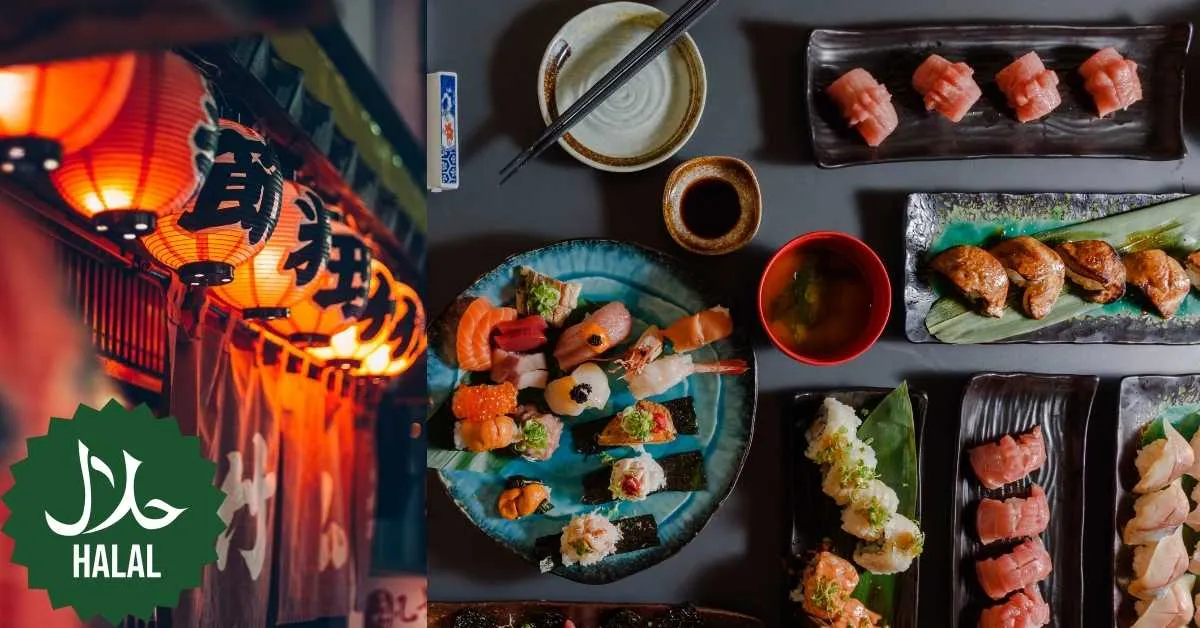Traveling to non-Muslim countries can be an exciting adventure, but for Muslim travelers, finding Halal food options can sometimes be challenging. Whether you’re wandering through the cobblestone streets of Europe, trekking in South America, or exploring bustling cities in East Asia, ensuring that your meals align with Islamic dietary guidelines is crucial. As a seasoned Muslim travel blogger, I’ve compiled this comprehensive guide to help you locate halal food no matter where you are in the world.
Let’s dive into practical tips, resources, and strategies to make your halal dining experience stress-free and enjoyable.
1. Understand What Halal Means
Before we explore how to find halal food, it’s important to understand what qualifies as halal. Halal, an Arabic term, means “permissible” and refers to food adhering to Islamic dietary laws outlined in the Quran. Common halal requirements include:
- Meat: Must be slaughtered in the name of Allah and processed in a specific way.
- Ingredients: Must not contain alcohol, pork, or any by-products derived from non-halal animals.
- Cross-Contamination: Food should not be contaminated with non-halal items during preparation or serving.
A clear understanding of halal standards will help you make informed choices while dining abroad.
2. Research Before You Go
Preparation is key when traveling to non-Muslim countries. Here’s how you can plan ahead:
- Use Halal Travel Apps: Apps like Zabihah and Muslim Pro offer comprehensive lists of halal restaurants and halal-friendly grocery stores worldwide. These tools can save you time and effort, especially in unfamiliar destinations.
- Join Online Forums and Communities: Platforms like Facebook groups and Reddit have active Muslim travel communities. You can ask for halal food recommendations or tips for specific destinations.
- Check Google Maps and Reviews: Search for halal restaurants in your destination on Google Maps and read reviews to ensure authenticity and quality. Keywords like “Muslim-friendly” or “Halal-certified” can be helpful.
3. Look for Halal Certification

Halal certification is a reliable way to verify the permissibility of food. Restaurants and food establishments that are halal-certified display their certification visibly on menus or storefronts. In some countries, government or private organizations oversee halal certifications, such as:
- Malaysia: Department of Islamic Development Malaysia (JAKIM)
- Indonesia: Majelis Ulama Indonesia (MUI)
- Australia: Australian Halal Authority & Advisers (AHAA)
If you’re unsure, don’t hesitate to ask restaurant staff for details about their halal status.
4. Learn Key Phrases in the Local Language
Communicating your dietary needs is easier when you know basic phrases in the local language. For example:
- English: “Is this halal?”
- French: “Est-ce que c’est halal?”
- Spanish: “¿Esto es halal?”
- Chinese: “这是法义的吗?” (Zhè shì fǎyí de ma?)
Write these phrases down or save them on your phone. Polite communication often leads to better understanding and cooperation.
5. Opt for Vegetarian or Seafood Options
In areas where halal-certified food is scarce, vegetarian and seafood dishes are a great alternative. Many cuisines around the world offer delicious plant-based or seafood options that align with halal guidelines:
- Italy: Enjoy vegetarian pasta or pizza made with fresh, halal-friendly ingredients.
- Japan: Sushi featuring vegetables, eggs, or cooked seafood.
- India: A wide variety of vegetarian curries and rice dishes.
Ensure that these dishes are free from alcohol or other non-halal ingredients by double-checking with the server.
6. Visit Muslim-Majority Areas
Many non-Muslim countries have neighborhoods or districts with significant Muslim populations. These areas often have halal restaurants, mosques, and grocery stores. For instance:
- London, UK: Visit Whitechapel or Edgware Road for an array of halal dining options.
- Paris, France: The 18th arrondissement, particularly around La Goutte d’Or, is home to many halal eateries.
- New York City, USA: Astoria, Queens, and parts of Brooklyn offer diverse halal food.
7. Shop at Local Markets and Cook
If you’re staying in accommodations with kitchen facilities, shopping at local markets can be a rewarding experience. Purchase fresh produce, seafood, and halal-friendly ingredients to prepare your meals. Some supermarkets even have halal sections. For example:
- Tesco and Asda in the UK often carry halal-certified meat.
- Carrefour in Europe and the Middle East also stock halal products.
Cooking your meals gives you full control over ingredients and preparation.
8. Utilize Halal Food Delivery Services
Food delivery apps have become increasingly popular and convenient for finding halal meals. Apps like Uber Eats, Deliveroo, and Grubhub often allow you to filter restaurants by dietary preferences, including halal. Check if your destination offers similar services to make your search easier.
9. Explore Halal-Friendly Global Cuisines
Certain cuisines are more likely to align with halal dietary requirements even in non-Muslim countries. For example:
- Turkish Cuisine: Kebabs, pide, and baklava are common halal dishes.
- Middle Eastern Cuisine: Shawarma, falafel, and hummus are widely available and often halal.
- Indian Cuisine: Vegetarian thalis, dal, and paneer dishes are excellent options.
Seek out restaurants specializing in these cuisines for greater halal-friendly choices.
10. Be Cautious About Hidden Ingredients
In non-Muslim countries, some foods may appear halal but contain hidden non-halal ingredients. Common culprits include:
- Gelatin: Often derived from non-halal sources.
- Alcohol: Found in sauces, desserts, or marinades.
- Animal-Based Broth: Used in soups and stews.
When in doubt, ask detailed questions about the preparation and ingredients.
11. Leverage Social Media
Social media platforms like Instagram, TikTok, and YouTube are excellent resources for finding halal food recommendations. Influencers and bloggers often share reviews, tips, and hidden gems. Searching hashtags like #HalalFood or #MuslimTravel can lead you to valuable insights.
12. Don’t Hesitate to Ask Locals
Local Muslims are often the best resource for finding halal food. Visit a mosque in the area, where you’re likely to meet people who can guide you to nearby halal restaurants or grocery stores. Building connections with local communities enriches your travel experience.
Conclusion
Finding halal food in popular non-Muslim countries doesn’t have to be daunting. With preparation, creativity, and a spirit of adventure, you can enjoy diverse culinary experiences while adhering to your dietary needs. By using apps, researching neighborhoods, and exploring global cuisines, you’ll find that halal dining opportunities are more accessible than ever before.
Enjoy your travels confidently, knowing that halal options are within reach, no matter where you go.




